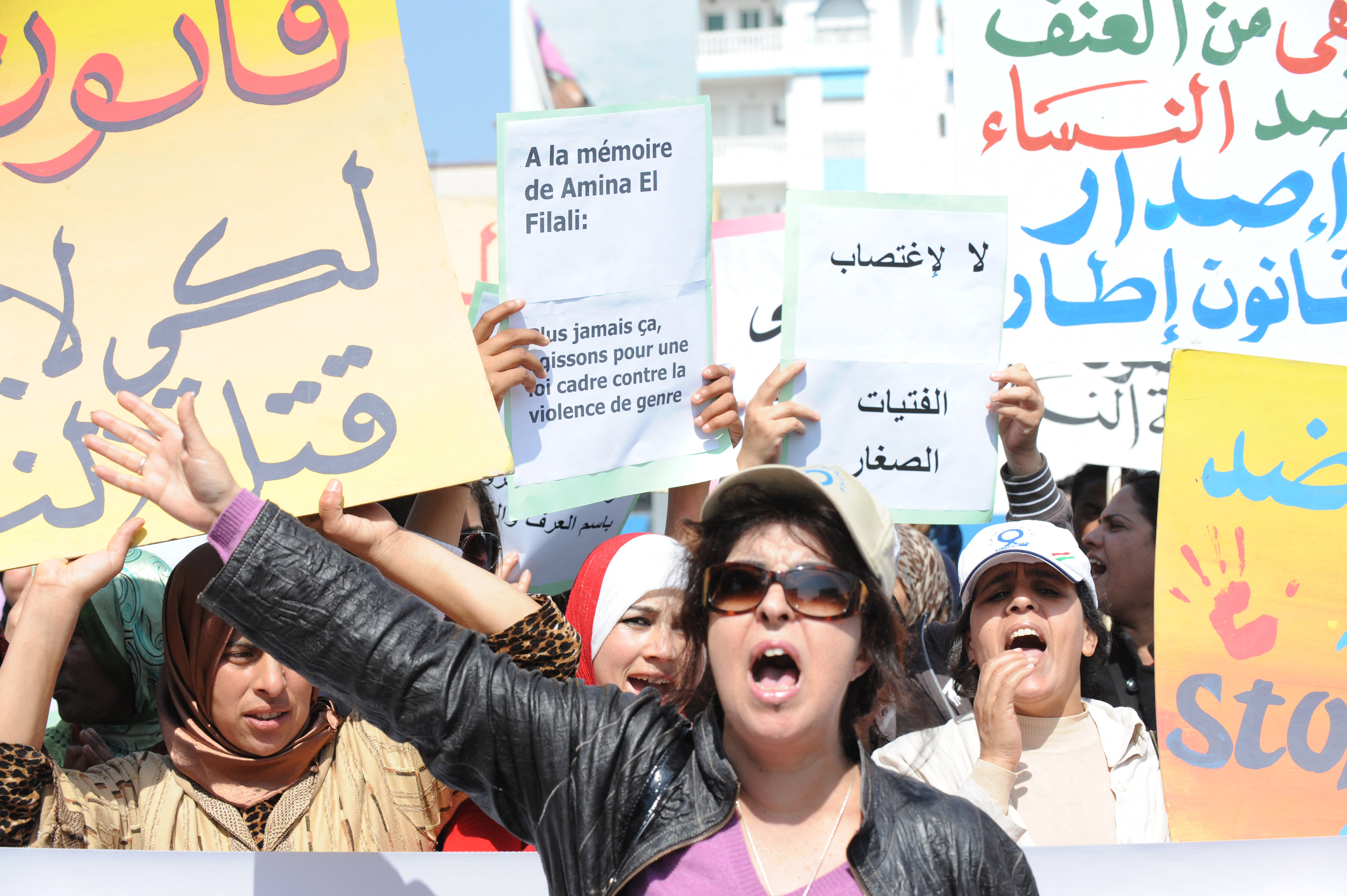This event has been postponed due to unexpected circumstances. A rescheduled date will be announced soon.
Despite Morocco’s many legal advances in women’s rights, the lack of effective implementation and the existence of legislative loopholes undermines the country’s reputation as open, tolerant, and progressive. In recent years, Morocco has taken substantial steps to establish parity between the sexes in constitutional, family, and criminal law. A sharp social divide exists: While feminist groups work to push legislative standards toward equality, conservatives in non-governmental organizations, judicial institutions, and broader Moroccan society continue to fight to limit the gender parity legislation and its effects. Social and cultural barriers form other key barriers for women’s equality and inherent rights. Economic needs and social traditions tend to favor antiquated female roles as early brides and domestic workers. Education and literacy among girls is still not valued in many corners. This situation obscures the critical contribution Moroccan women make to the local economy; enables even more pronounced levels of poverty and vulnerability, particularly for divorcees, widows, and female heads of household; as well as prevents greater exposure of marginality and violence toward women, especially regarding conjugal and domestic violence.
The Middle East Institute (MEI) and the North African Policy Initiative (NAPI) are proud to present the fourth installment of the youth roundtable series focused on Morocco, convening experts from the region to discuss the status of women’s rights in Morocco.
Speakers
Hamza Bensouda
Co-founder, Socie’tea
Hafssa El Mesbahi
Co-founder, Deleuze Policy Institute
Intissar Fakir, moderator
Senior Fellow; Director, Program on North Africa & the Sahel, Middle East Institute
Detailed Speaker Biographies
Hamza Bensouda is a researcher specializing in government, gender and violence in the Maghreb. He is the co-creator of Socie’tea, a podcast on Maghreb societies, cultures and history, and writes articles for various media outlets. He is also the author of Between anonymity and visibility: Understanding gender militantism in Morocco.
Hafssa Elmesbahi is a Moroccan civil society activist. She is the co-founder of Deleuze Policy Institute and currently holds the position of Project Coordinator with Urgent African Fund. Her topics of expertise include gender rights, specifically legal guardianship, employment and public liberties.
Intissar Fakir is a senior fellow and director of MEI’s North Africa and Sahel program. She is an expert on North Africa, the Sahel, and key regional thematic issues including governance, social change, migration, and security. She has written extensively on North Africa’s evolving politics including Islamist electoral politics in post-2011 Morocco and Tunisia, the Western Sahara issue, foreign policy priorities in Morocco and the broader region, and the impact of COVID-19 on regional political stability. Her research has also included political transitions, mobilization trends, energy, and social change in Morocco, Mauritania, Algeria, and Tunisia. Prior to joining MEI, Intissar was a fellow at the Carnegie Endowment for International Peace where she was also the editor-in-chief of the bilanguage (English and Arabic) Middle East platform Sada. She has also implemented programs at various NGOs in support of political, economic and social reform in North Africa and the Middle East. She has consulted and advised governments and corporate entities in the US and Europe on Maghreb developments.
Photo by ABDELHAK SENNA/AFP via Getty Images












